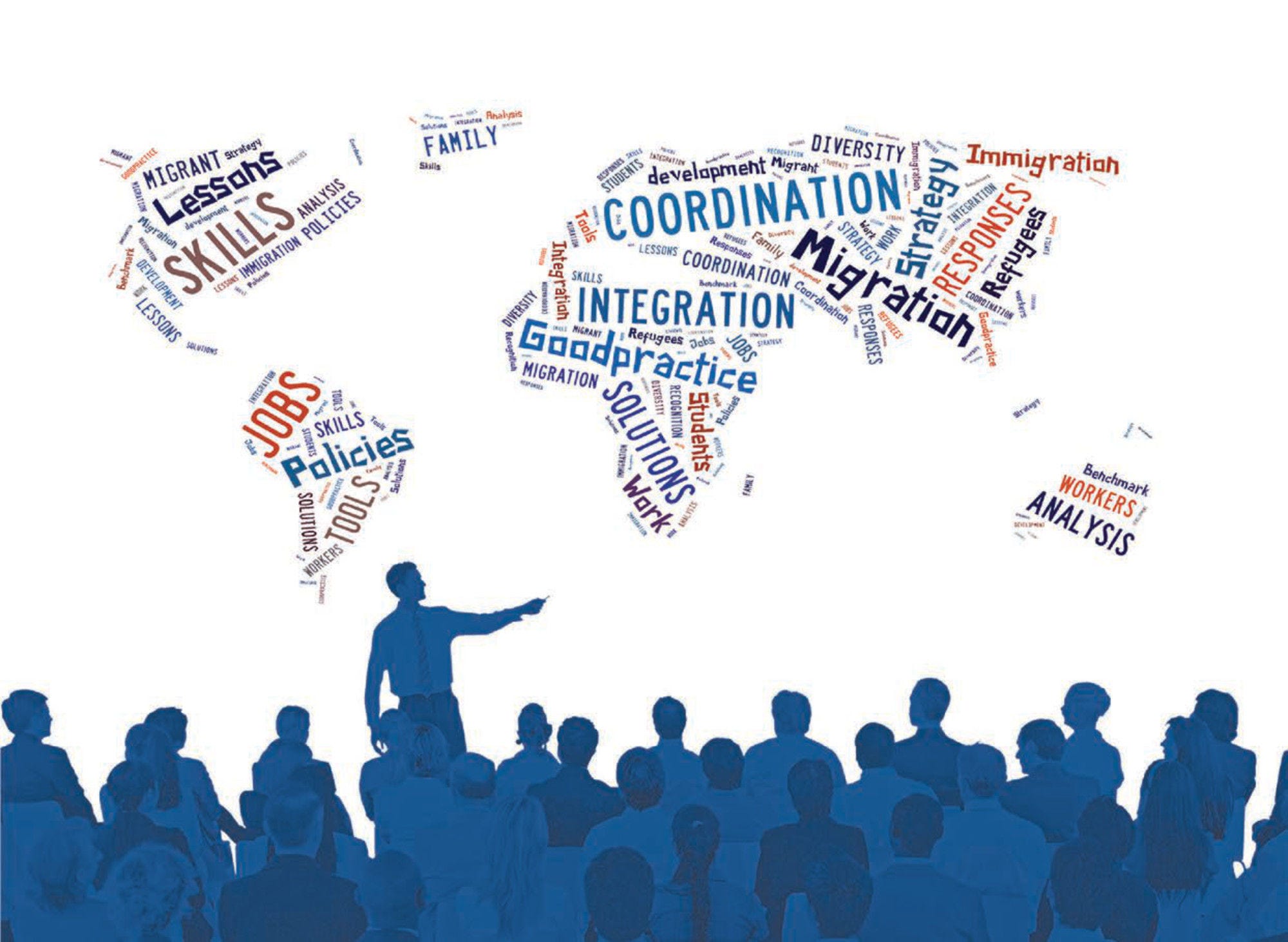Stakeholders have a range of options available, including:
Combating discriminatory hiring practises through legislation and ensuring equality of opportunity in recruitment
Raising awareness about workplace rights and protection of all staff as well as about inclusive workplaces more broadly
Assisting employers in achieving and sustaining a diverse workforce
Most OECD countries have taken measures to combat discriminatory hiring practices. However, the scale and scope of the steps vary widely. The most common action to combat discrimination are legal remedies. Many OECD countries have, for example, implemented non-discrimination legislation along with agencies responsible for monitoring its application. In the OECD countries that were settled by migration, like Australia, Canada and the United States, such legislation dates back several decades. In the European context, significant impetus came from the EU’s Racial Equality Directive 2000/43/EC. The directive implemented the principle of equal treatment between persons irrespective of racial or ethnic origin.
Several OECD countries have also implemented more proactive policies to remove barriers that hamper access to the labour market for youth with migrant parents and promote professional upward mobility. Often they are based on targets, although hard quotas are rare. Countries like Finland, France, Germany and Norway, for example, have experimented with anonymous CVs, though generally only in small pilots. These tools, if carefully designed and monitored, can be effective in tackling discriminatory hiring practices (Heath, Liebig and Simon, 2013[93]).
Equality of opportunity in recruitment also includes to set up diverse selection teams and interview panels. It involves strengthening recourse and support mechanisms for potential victims of discrimination. This can also include setting up internal staff networks that promote diversity and inclusion (OECD, 2020[95]).
Along with anti-discrimination legislation, initiatives inform youth with migrant parents about workplace rights and protection and help them enforce these rights in cases where they are not respected. Australia, for example, has developed a “pay and conditions tool” to assist migrants and temporary visa holders in checking their salary and entitlements. The tool includes videos, brochures and posters informing about workplace rights in various languages. Moreover, it has put in place a free translator service for access to the Fair Work Ombudsman. Many other OECD countries undertook similar efforts.
Requiring employers to frequently monitor and report on measures taken to support diversity can ensure that rules and regulations are no ‘empty shell’ policy. In Sweden, for example, senior civil servants have to follow-up on diversity goals as part of their performance review. An obligation for employers to report on equality measures also exists in Norway (OECD, 2020[95]).
Countries also need to clearly communicate about and raise awareness on the benefits of inclusive and intercultural competent workspaces more broadly. Again, such efforts ideally start in the public administration. Through active diversity policies for the public sector, the state can be a role model for the private sector. One example is the Mana Aki project in New Zealand, a training programme for staff in public services to become aware and reflect on their intercultural competencies in an online setting.
A growing number of OECD countries have developed diversity labels or charters, to highlight diverse recruitment practices and to support the implementation of inclusion policies in companies. While not exclusively targeted at youth with migrant parents, they are often an important target group of such diversity tools, particularly in countries with large populations of youth with migrant parents and persistent disadvantage, such as in many longstanding European destinations. The French government, for example, provides companies with the possibility of passing an audit as to whether or not they use fair hiring and promotion practices. If enterprises satisfy six criteria, they can obtain a diversity label (‘label diversité’). The criteria include a formal commitment to diversity; an active role of the social partners; equitable human resource procedures; communication by the enterprise on the question of diversity; concrete public measures in favour of diversity; and evaluation of practices. Along similar lines, Belgium grants specific diversity awards to employers with diversity-friendly company structures. Canada helps employers to obtain a diversified workforce by providing diversity training and support in developing inclusive hiring practices and retaining newcomers. Other OECD countries, including Austria, Belgium, Finland, Germany, Italy, the Netherlands, Spain and Sweden, have promoted ‘diversity charters’. Signatories commit themselves to pro-diversity recruitment and career management practices.
Large corporations often find it easier to implement diversity-led recruitment practices and inclusion policies than small and medium-sized enterprises. SMEs have fewer resources, and recruitment channels are often subject to the bias of personal networks. To address this, in Flanders, SME employers could request financial support from the Flemish Department of Work and Social Economy to develop “Diversity Plans” until 2016. To support staff in their efforts to establish a diversity policy in their company trade unions deploy “diversity consultants” (van de Voorde and de Bruijn, 2010[96]). An organisation from France that seeks to equip employers with opportunities to recruit, retain and promote ethnically diverse staff is Mozaïk RH. The recruitment agency specialises at fostering diversity at the workplace by matching young candidates with migrant parents with local businesses. As part of its efforts, Mozaïk RH runs a job preparation programme, ‘Mozaïk Campus’, offering workshops, individual coaching and media-trainings. In Germany, the ‘WelKMU’ project targets highly educated youth with migrant parents to foster the presence of graduates with migrant parents in small and medium-sized enterprises (SMEs). WelKMU supports students in tertiary education through counselling, information sessions at universities and application workshops. The project also offers networking events, company fairs and company visits. SMEs receive short information videos and diversity training as well as targeted placement, counselling, trouble‑shooting and mediation services from recruitment through the employment stage.

